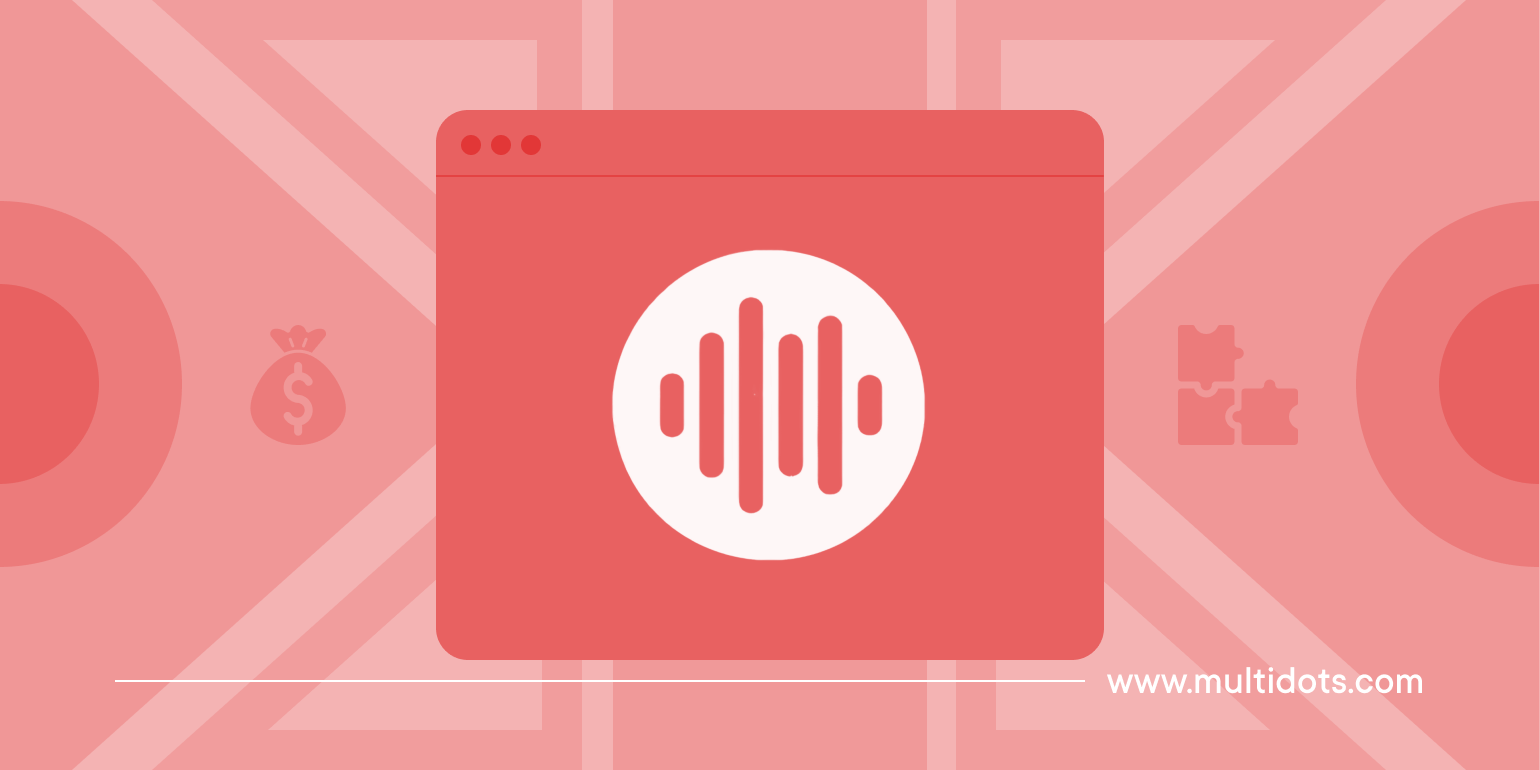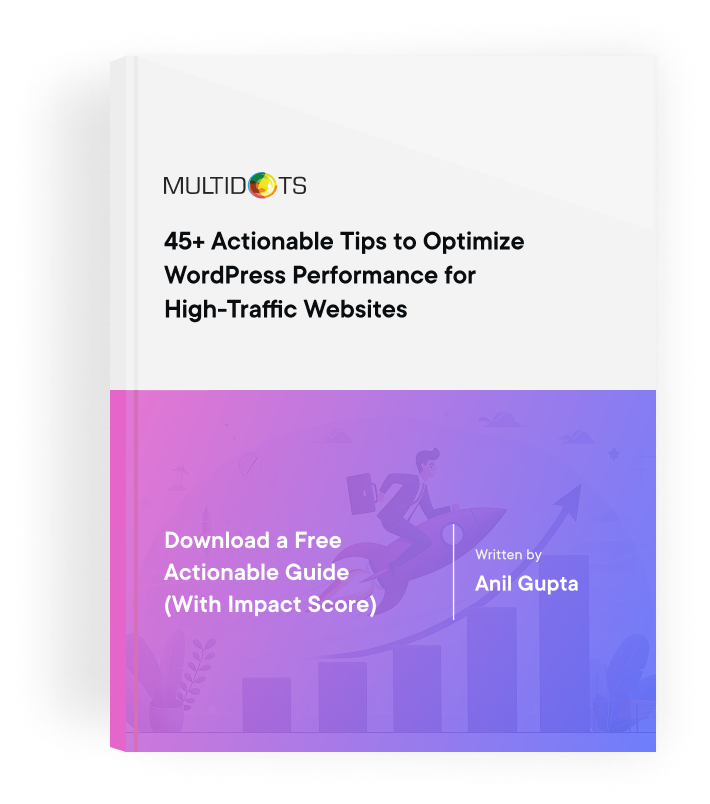Chorus CMS Migration: Addressing Cost and Compatibility Issues
Learn the cost benefits of a Chorus to WordPress migration and ways to mitigate compatibility issues

Table of Contents
Migrating from Chorus to WordPress is a fairly straightforward process, and may not pose any challenges or complications, provided you choose the right approach towards it. If you are unsure, outsourcing the process to an experienced agency is always a good idea.
That said, assessing the costs associated with the process and monitoring any compatibility issues that pop up during and after determine whether your migration will actually be successful. Let us start by understanding the cost implications of a Chorus to WordPress migration, and then proceed to discuss the compatibility considerations.
Understanding Cost Implications
The overall budget and costs associated with your Chorus to WordPress migration will primarily depend on whether you go about the process manually or through plugins. It will also depend on whether you do it in-house or outsource the process to an experienced agency.
Aside from these factors, you must also consider the costs associated with setting up your new WordPress website after you migrate from Chorus. Even then, these costs are minimal compared to the ongoing costs you may incur by retaining Chorus as your CMS.
Some of the primary costs you need to consider when migrating from Chorus to WordPress are:
1. Platform Fees
While your new WordPress website can be hosted on any hosting platform, the costs can vary based on your chosen provider and pricing plan. If you opt for shared hosting, you may be spending as little as $3/month, which can go up to $100/month for managed WordPress hosting.
You can also use migration plugins such as Duplicator Pro, for which you will pay a fixed annual fee in exchange for advanced features and even additional services related to migration. You can also choose to transfer an existing domain or purchase a new domain which can cost between $10 to $20/year.
2. Customization Expenses
Even though WordPress is open-source, you could spend between $30 to $100 for premium themes, and additional costs for plugins depending on their functionality. You may also need to opt for custom development for additional features and functionality, which would be a one-time cost. If you are going for a full-scale customization, you might spend a few hundred to even a few thousand dollars, depending on the scope.
3. Additional Technology or Services
You should also leverage SEO services and security measures that will level up the post-migration effectiveness of your website. You may also consider implementing additional technological solutions or software that you may want to integrate with your WordPress website for more effectiveness.
In addition to the aforementioned costs, you should consider the long-term cost benefits of migrating from Chorus to WordPress, including reduced maintenance. You will also spend less scaling your website on WordPress vs Chorus.
Compatibility Considerations
Aside from implementing a budget-cost fit for your migration process, you should also ensure compatibility between the features of your Chorus and WordPress website. The aspects you need to consider during migration — data, functionality, and design, are:
1. Data Compatibility
You must maintain content integrity when migrating from Chorus to WordPress, and ensure that all your images, pages, and custom data types are transferred accurately without data loss or corruption. Otherwise, you may end up dealing with missing content or broken links, taking a toll on your SEO performance.
You may also need to replace the custom content structures of your Chorus website with Gutenberg blocks on WordPress. This simple compatibility check can help you streamline your editorial process.
2. Design Compatibility
The visual design of your WordPress website must align with your Chorus website's existing branding and design expectations. Try finding a WordPress theme that can replicate or enhance the design elements of your Chorus website. You must also ensure your design is responsive across devices to avoid layout issues that can negatively impact your usability and accessibility.
3. Functionality Compatibility
Your business may depend heavily on features such as custom workflows or integrations offered by your Chorus website. Your migration process should allow proper planning, replication, or improvement within WordPress through plugins or custom development. You must also ensure that your URL structures are preserved or redirected and that your metadata is intact to avoid any drop in search rankings.
In addition to the compatibility tests, you must deploy thorough testing and a wide range of migration tools or plugins to ensure post-migration effectiveness and performance.
Addressing SEO and Operational Continuity
Another crucial area you must pay attention to in your post-migration phase is your SEO performance. You must ensure SEO-friendly architecture on your WordPress website to handle or maintain search engine rankings.
Some of the steps you must take to ensure seamless SEO performance on your new WordPress website are:
- Establish a baseline of your current SEO performance and designate key metrics to measure the success of your migration and SEO performance post-migration.
- Create and implement an SEO checklist that includes all the essential parameters during migration.
- Ensure that your URL structures are effectively preserved and implement redirects wherever applicable.
- Track and monitor your SEO performance using tools like Google Search Console and Google Analytics.
In addition to these, here are a few actions you must take to minimize the downtime because of migration and ensure operational continuity in the process:
- Replicate or improve the existing content management workflows with appropriate ones in WordPress.
- Set up appropriate user roles and permissions to align with your existing processes.
- Integrate third-party services with your WordPress website, wherever applicable, and configure custom scripts to maintain functionality.
- Implement a robust backup system for your WordPress website after migration to avoid data loss during the transition.
- Manage regular updates and maintenance of your WordPress website to minimize vulnerabilities and maximize performance.
Leveraging WordPress Features Post-Migration
Once you have dealt with the cost and compatibility issues associated with your Chorus to WordPress migration, you must delve deeper into the WordPress features that can be leveraged post-migration.
The biggest benefit of switching to the WordPress environment is the extensive plugin ecosystem you can access to extend your website's functionality. The vast WordPress plugin directory houses over 59,000+ official, free, and paid plugins. You can also leverage the strong community of WordPress developers to get help enhancing your website's functionality and user experience.
Some of the key features you can utilize by switching to WordPress are:
- Easy Landing Page Creation: With WordPress, you can create powerful and conversion-oriented landing pages at little to no cost, maximizing your website and business performance.
- Advanced SEO Plugins: You can get access to hundreds of SEO plugins designed to offer advanced SEO features that can help maintain your search engine rankings.
- Extensive Marketing Integrations: You can also get access to several software integrations that can streamline your business operations and processes.
- User & Media Management: With WordPress, you can assign different kinds of user roles and permissions to your team members so that you can publish and manage content easily. You can also easily upload images and media to your WordPress website.
Wrapping Up
You must manage your costs effectively when carrying out a full-scale Chorus to WordPress CMS migration. It is important to align your budget with the costs associated with the migration and ensure compatibility between the features of both websites. To deem your migration a success, our newly migrated WordPress website should emulate the functionality and features offered by your Chorus website.
Hiring an experienced WordPress development agency like Multidots can help ensure you don’t face any cost or compatibility-related issues during or after the migration. Contact us to get started with your zero-downtime migration.
FAQs
-
The costs associated with your Chorus to WordPress migration will depend on the hourly wages of the resources involved in the process. You will have to consider this regardless of whether the migration is manual or driven by plugins. You must also consider the additional costs associated with the themes and plugins you purchase for your WordPress website.
-
You can migrate from Chorus to WordPress entirely in-house or use a bit of professional help. Additionally, you can either seek help with certain parts of the migration process or enroll for the help of an agency that can help you handle the entire process.
-
Because of the imminent end-of-life scenario for Chorus, migrating to a powerful CMS is not optional. WordPress can be a great choice considering the plethora of features, functionalities and plugins offered by the platform. It is also a more cost-effective alternative to Chorus and can help you scale your operations effectively.
Feel free to schedule a quick call with our migration expert.
Contact Us
